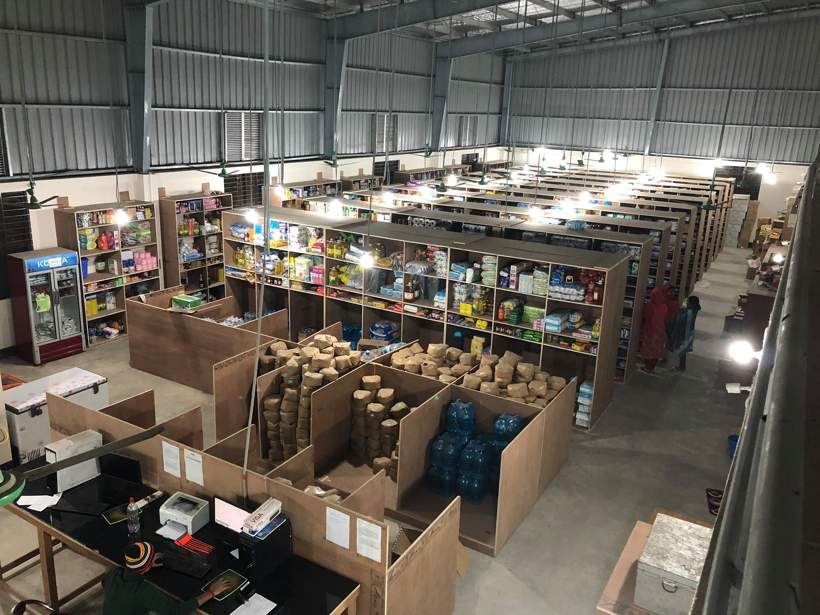
As more and more businesses and consumers become comfortable using online shopping, the proportion of Bangladesh commerce that takes place online has steadily increased over the last ten years. This growth has created major opportunities in the digital commerce space, and companies like Chaldal — a Dhaka-based online grocery startup — are hungry to capitalize on them.
Waseem Alim, Zia Ashraf, and Tejas Viswanath founded Chaldal in 2013 in an attempt to gain a share in online grocery shopping, a then-nascent market with seemingly boundless growth opportunities. Specifically, the Chaldal founders aimed to make grocery shopping seamless. The company has since evolved. Today, it has not only built a successful online grocery business, but it has also built an end-to-end grocery supply chain creating a direct backward linkage with farmers as well as a forward linkage with smallholder retailers allowing it greater leverage in the grocery supply chain. Chaldal is building a suite of businesses that allows customers to avail groceries at a better price and improve the overall grocery supply chain in Bangladesh. These businesses handle everything from working directly with farmers to working with smallholder retailers to micro-warehousing and logistics.
Chaldal is also pursuing some more unexpected areas, including working in the Rohingya refugee camp with WFP, making a strategic investment into home food delivery startup Cookups, and turning its marketplace tech into Chaldal Systems.
Over the years, Chaldal has expanded its platform beyond the marketplace and micro-warehouse model and embedded itself firmly into the grocery supply chain with initiatives like Chaldal Vegetable Network and logistics operations Go Go Bangla.
As a result of its product innovation efforts, Chaldal has seen excellent growth in product adoption and business and has broadened its product offerings across the entire grocery shopping stack. Today, the company delivers over 4000 orders per day.
In 2020, the company closed its Series B funding round and amid the current coronavirus pandemic, Chaldal is one of the companies playing a critical role in keeping household grocery demands fulfilled while helping Chaldal customers stay indoors and safe. Chaldal is one of the most important digital commerce companies in Dhaka.
The ambition of this report is to look into the size and intricate operation of Chaldal. In simple I want to address the question “how big is chaldal and how Chaldal works”. You can call it a teardown of Chaldal’s operation, growth trajectory, product set, business, and strategy. I want to be thorough and comprehensive and plan to do it in the following way:
Chaldal is building a suite of businesses that allows customers to avail groceries at a better price and improve the overall grocery supply chain. These businesses handle everything from working directly with farmers to working with smallholder retailers to micro-warehousing and logistics.
Chaldal is the largest online grocery business in Bangladesh. The company, which started as a small online grocery ecommerce, has since evolved into a food behemoth and today, has many verticals complementing the grocery at the center of it all.
The marketplace business, with which Chaldal started its operation, has grown and morphed into a micro-warehouse-led on-demand delivery model, where it helps urbanites to have their groceries and basic necessities delivered to their doorsteps. Today, the company has 12 micro-warehouses across Dhaka city and a mothership warehouse of 30,000 sq feet and continues to experience excellent growth in orders.
About a year ago, Chaldal made a major decision to put itself deeply into the vegetable supply chain. The decision gave birth to the Chaldal Vegetable Network (CDVN) that works directly with farmers establishing a direct backward linkage for Chaldal allowing it greater control over the supply chain. CDVN also works with smallholder retailers across Dhaka where it supplies vegetables to smallholder retailers that they would otherwise have to collect from Kawran Bazar and similar wholesale markets. CDVN works closely with these smallholder retailers, maintains a record of their transactions with CDVN, and helps them access formal financial support such as Bank Loans using the transaction data that these smallholder retailers did not have access to before working with Chaldal.
On the warehouse and logistics side, the company has been working with small digital retailers offering them both warehousing facilities and logistics support. To work with small digital retailers, it has spun off its logistics wing into Go-Go Bangla. Go-Go Bangla handles logistics for Chaldal as well as works with small online retailers to help them send their orders to customers.
Small online retailers, popularly known as Facebook-commerce in Bangladesh, are one of the most dominant forces in digital commerce in Dhaka. Thousands of small and medium enterprises have built upon the advantage of low-cost launch opportunities, minimum distribution cost, targeted marketing, and the easy-to-maintain nature of Facebook businesses. Go-Go Bangla enables these small entrepreneurs with logistics since all these players need a logistics partner. Small digital commerce companies drop off their deliveries to Chaldal warehouse and Go Go Bangla delivers those off along with Chaldal orders. This has allowed Chaldal to make its logistics much more efficient and earn revenue from its unused capacities.
Chaldal has made a strategic investment in Cookups - an online home-made food delivery service. Cookups works with women who run small micro-kitchens at their homes and supply home-cooked food to businesses and consumers. The strategic move offers an excellent opportunity for Chaldal to acquire new customers for both CDVN and the Chaldal marketplace. Chaldal can sell products to both Cookups home cooks as well as Cookups customers.
Another important front of Chaldal’s business now is the Rohingya Camp where the company is working with the World Food Program as a supplier. It manages certain distribution centers for WFP. While WFP remains its main customer, the company also works directly with some 26,000-30,000 families. These families collect food from Chaldal distribution points. Chaldal manages the backward linkage and supply chain for this.
These are some of the major areas where Chaldal operates. The company says it aims higher. “Our goal is to establish a transactional relationship with every single Bangladeshi business and household,” Chaldal Founder and CEO Waseem Alim says. “Now that could be through the Chaldal marketplace, Cookups, through our work in Rohingya camp, through CDVN, Go-Go Bangla, etc.”
These different parts of Chaldal may appear disjointed to you. But they are not. There is an underlying logic that connects them all.
“When you go to a farmer, the identity of Chaldal is who buys vegetables. To a small retailer, the identity is different which is Chaldal is someone who sells and supplies vegetables. If you go to a Rohingya refugee, Chaldal is someone where they are getting their ration from. What Chaldal is, depends on you,” says Mr. Waseem. But each of these identities is connected with each other.
“Our goal is to establish a transactional relationship with every single Bangladeshi business and household,” says Chaldal Founder and CEO Waseem Alim. “Now that could be through the Chaldal marketplace, Cookups, through our work in Rohingya camp, through CDVN, Go-Go Bangla, etc.” These different parts of Chaldal may appear disjointed to you. But they are not. There is an underlying logic that connects them all.
In this part, we deal with different parts of Chaldal’s business in detail. We look into how the Chaldal marketplace and micro-warehouse-led delivery business works, CDVN, Chaldal’s investment in Cookups, Go Go Bangla, and so on. The purpose is to offer a better picture of each of Chaldal’s businesses so that we can identify the common thread that connects each of them with others.
a. Chaldal micro-warehouse-led marketplace business
Chaldal marketplace is what most users of Chaldal know Chaldal for. It is Chaldal's marketplace-led grocery business. It has broadly three parts. One, Chaldal website where you can go to and place an order. But what happens to that order is a completely different story. We have written about how Chaldal deals with orders here from a tech perspective. It is a fascinating read.
Chaldal has micro-warehouses built across the city with an ambition to improve delivery time, and logistical efficiency and minimize cost. In many ways, it is a hyper-local model allowing the company to deliver goods to customers in less time, which is a key piece of any delivery business. Chaldal’s marketplace business has seen excellent growth in the past years.
Chaldal considers its micro-warehouse that enables the Chaldal marketplace as a separate unit within the Chaldal universe. The company says its micro-warehouse model is profitable if it does not have to pay for its tech. The company has big ambitions for micro-warehouses in the future.
“We have managed to establish our micro-warehouse business,” Mr. Waseem says. “Our focus now is to make it more efficient. We are looking into opportunities to offer greater benefits to our customers. Some of our work has already made a meaningful impact on the market. For example, we have been able to stabilize onion prices in the market during the recent price hike through a better sourcing model. Working with producers, we could offer a competitive price which eventually helped in bringing down the price in the broader market after a few days. We already have one of the most successful distribution mechanisms at scale for groceries in Bangladesh. Our grocery business employs some 700 people.”
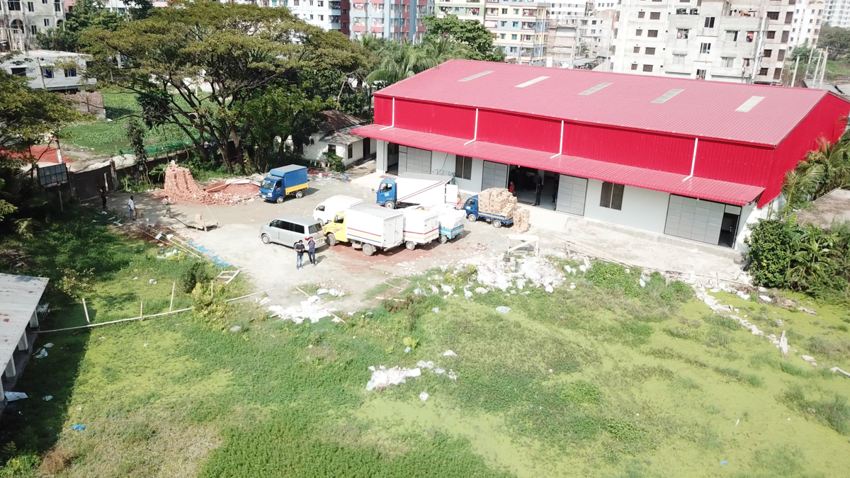
B. Chaldal Vegetable Network (CDVN)
The next most important piece of Chaldal’s business is Chaldal Vegetable Network (CDVN). CDVN operates completely independently from Chaldal’s marketplace business. The network solely focuses on bulk supply and B2B.
CDVN connects farmers with retailers directly improving the entire supply chain outcome for everyone including farmers, retailers, and consumers. We have written about CDVN here. It collects fresh produce from farmers and supplies to smallholder retailers. In the process, it improves the chance of getting a fair price for farmers, improves lifestyle and options of product return for retailers, and ensures traceability in the entire supply chain, thus ensuring the quality of produce and price predictability for customers.
The CDVN was formally launched in January 2019 with a small team. The idea was to offer fresh vegetables to local and small-holder retailers – a B2B vegetable business. The first channel for CDVN is the Chaldal marketplace itself, and the second channel is retailers and grocery stores. Over the past months, the network has seen healthy growth. CDVN has a registered retailer base of over a thousand vegetable retailers across Dhaka and the number is growing every day.
Chaldal Vegetable Network offers an interesting model for Chaldal. On one hand, Chaldal is a customer of Chaldal Vegetable Network since Chaldal buys vegetables from CDVN. It has made it easier for Chaldal to get into the vegetable supply chain business relatively easily. Second, it has allowed Chaldal to establish relationships with smallholder retailers and open a substantial revenue stream as well as improve its sway over the food supply chain. By enabling smallholder retailers to maintain their transaction data, Chaldal has potentially opened a new front of business - finance. In the future, Chaldal can play around with these data and push further into developing new products.
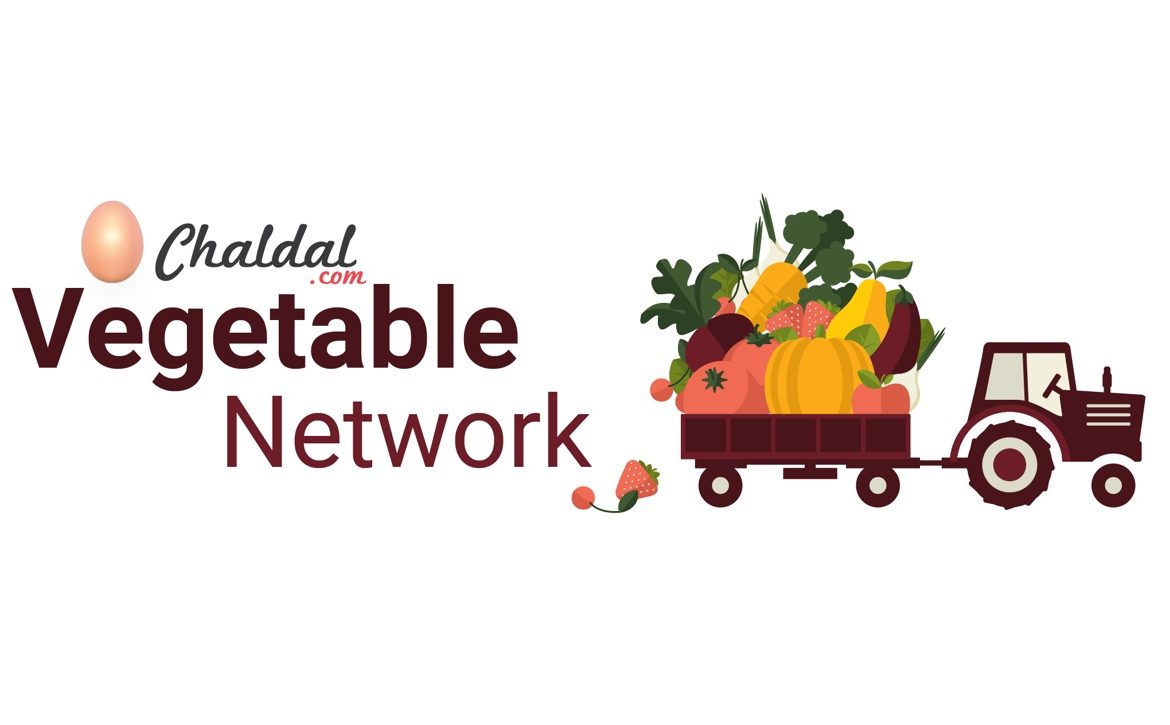
C. Rohingya Camp: Empowering refugees
In the last one year, Chaldal has become one of the major players in the Rohingya refugee camp in Cox’s Bazar. The company says that its Refugee camp operation is the third-largest pillar of Chalddal’s business today.
“The third front is the Rohingya Camp where we are working with the World Food Program as their supplier and managing certain distribution centers for them,” Mr. Waseem explains. “WFP is our main customer but we are dealing with some 26,000 families directly. We manage backward linkage and supply chain for this.”
D. Strategic partnership with Cookups
In an interesting turn of the events, Chaldal has made a strategic investment in Cookups, a Dhaka-based home-cooked food delivery service. The thesis is simple: acquiring more customers for both Chaldal and CDVN.
“The interesting thing about Cookups is that there are a lot of small micro-kitchens involved in the Cookups business creating opportunities for a lot of women,” says Mr. Waseem. We see a huge social aspect of it. We also see it as an opportunity to sell products to these home cooks and also Cookups customers. This is very good for our customer acquisitions.”
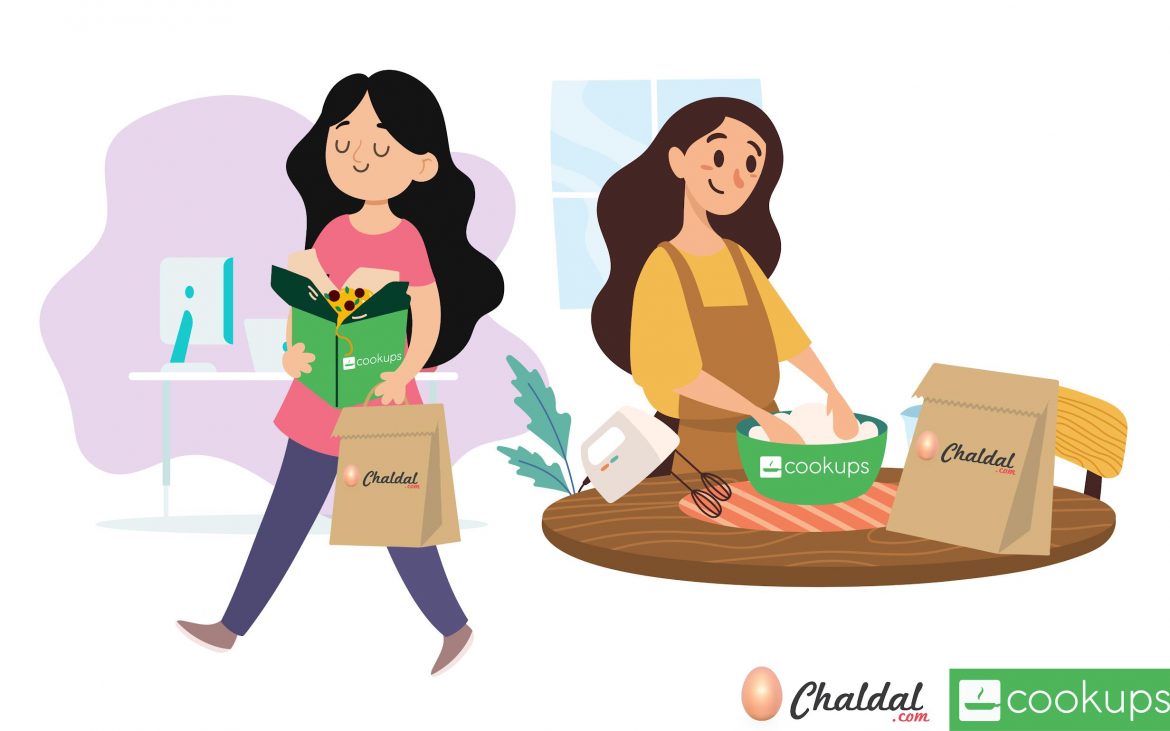
All these parts of Chaldal’s operation appear to be disconnected on the surface. How does working in the refugee camp and collaborating with WFP connect with Chaldal’s micro-warehouse business? How does CDVN contribute to Chaldal’s online grocery business? How does Go Go Bangla help improve Chaldal’s business? While these businesses appear out of sync on the surface, they have strong underlying connections and complement each other.
For example, working at the Refugee camp allows Chaldal to aggregate more demands thus allowing it to have the upper hand in its work with suppliers. It can exert a greater influence on the supply chain. CDVN, on the other hand, cuts both ways. It improves Chaldal’s ability to serve its customers better with higher quality products since it directly sources from farmers. Similarly, since it works with smallholder retailers, CDVN allows Chaldal to aggregate more demands allowing it to have greater bargaining power with farmers and other suppliers.
Broadly speaking, you can divide Chaldal’s business into three components. One, the online marketplace that you know as the Chaldal website. Two, micro-warehouse that enables online marketplace business. Three, logistics enable Chaldal to deliver goods to the doorstep of customers.
On the marketplace end of the business, the most important part is demand. The more demand Chaldal generates, it can bargain well with the suppliers and exert greater power on the supply chain and shape it. To that end, Chaldal is an aggregator. Through its customer-facing online marketplace, it aggregates demands and that demand allows it to work better with suppliers.
Now, any effort or business that allows Chaldal to aggregate demand is a good thing for Chaldal. This is where the Chaldal Vegetable Network comes in. It aggregates demand from smallholder retailers thus allowing Chaldal to have more power in the vegetable supply chain. Working with WFP in the Rohingya refugee camp allows Chaldal to aggregate more demands. All these businesses connect with demand aggregation, empowering Chaldal to enjoy greater control of the supply chain as well as allowing it more leverage to serve customers better and thus perpetuate the virtuous cycle.
“The goal is that all of these help us to source better, get the demand better, it gives us the leverage in the supply chain and allows us to serve the customers better”, Mr. Waseem explains. “We can have better control over the supply chain and put pressure on the quality control. In the future, we will be able to reduce the cost of access. These three businesses act as one business.”
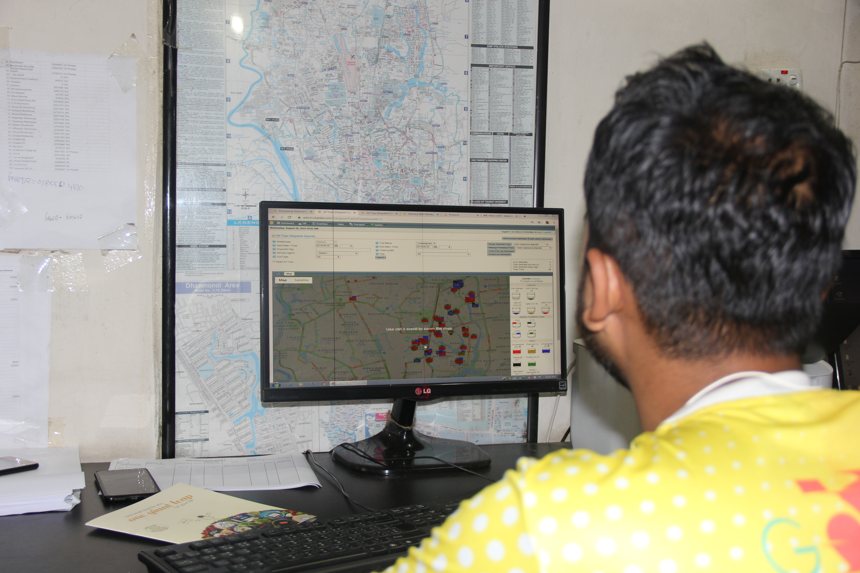
Chaldal’s various verticals are seeing steady growth. For example, its smallest business Go Go Bangla now deals with some 600-700 orders per day. The number is not that big but it is growing consistently. Go-Go Bangla market share is probably around 2% but it can grow far larger in the coming years. On the online grocery end, Chaldal’s market share is almost 90%. In the Vegetable Network, Chaldal is the only player doing it.
Chaldal is a team of 1,200 people in total. The company has a quite large setup in Jashore where it has some 200 people. “We are probably the largest employer in any Government High Tech Park at this point”, says Mr. Waseem. “In Jashore, we have been able to attract the best talent in the town. We are offering a tech job that is probably not available in Jashore. In Cox's Bazar, we are right now employing some 50 people. We are setting up a full-fledged operation in Cox’s Bazar. We have built the operation, we are now setting up the technology infrastructure.”
*****
Food is a huge market. More than half of consumer spending goes to food. While the Chaldal marketplace has several thousand products, the company by all means aims to go deeper into food in the coming years.
“We think we have enough scope to scale within the food. We don't have any plans to go outside of food and into mobile phones and similar things in the near future. Our goal is to dominate food first,” explains Mr. Waseem. “We are now looking into how we can improve quality and so on. The vegetable network is working on quality. Since we have a large demand, we can put pressure across the supply chain to improve quality.
Chaldal can play around with data and bring greater efficiency to the supply chain benefiting both the farmers and the consumers. “Think of how long it takes to bring an egg to customers after a chicken laid the egg,” says Mr. Waseem. “I can calculate the same for vegetables. So the product will be as fresh as possible. That's where we are making a difference which is not something that is easily seen. We can measure moisture in the rice. We can tell the mill what kind of moisture we want in rice.” As Chaldal aggregates more demands, its power grows exponentially.
****
This drives home the point Mr. Waseem made earlier regarding the ambition of Chaldal: “our goal is to establish a transactional relationship with every single Bangladeshi business and household”. Food is where that relationship begins and from there Chaldal can go anywhere.
